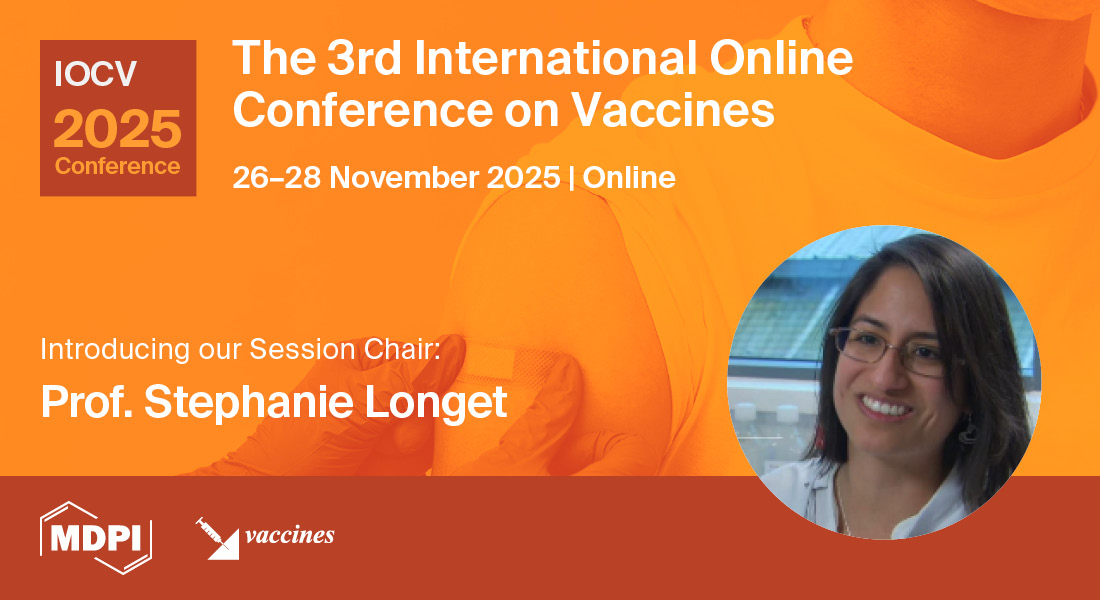
Vaccines | Interview with Dr. Stephanie Longet—Session Chair of the 3rd International Online Conference on Vaccines
11 September 2025
- Could you please briefly introduce yourself?
I am Dr. Stephanie Longet, and I am an Assistant Professor at the University of Saint-Etienne in France.
My main research interests are the development of intranasal vaccine strategies against respiratory viruses. We are testing novel strategies to deliver vaccine components to the nasal mucosa, and we are evaluating novel adjuvants to improve airway memory immunity. In addition, we are developing novel human in vitro models and techniques to measure respiratory memory immunity post-infection or post-vaccination in humans. - What do you think of the development status of and trends in open access publishing?
Open access publishing is crucial to share knowledge with the whole community of researchers, including researchers in LMIC. Open access publishing is also very useful for a large audience to access scientific knowledge and recent data in the field of vaccines. - What is your impression of the Vaccines journal?
The Vaccines journal publishes a lot of studies that evaluate novel vaccine technologies and strategies to improve the efficacy of vaccines at preclinical and clinical stages. Novel platforms are discussed. There are also a lot of reviews explaining the current status of a large range of vaccinations in different countries. This journal covers all essential topics linked to vaccine research. - What do you think will be the research hotspots in the field of vaccines in the next few years, and can you describe them to us?
Mucosal vaccines will remain a hotspot because they have the ability to induce protection at the site of infection. However, it is still very challenging to develop vaccines that induce protective immune responses at mucosal surfaces.
I also presume there will be new mRNA vaccines that will be licensed. The versatility of this platform is very promising.
Developing multivalent vaccines will also be a research hotspot. Having one vaccine formulation that targets several pathogens would also be beneficial. - Can you give any advice on academic research for young scholars in related fields?
Developing safe and effective vaccines is a challenging journey. Only a few vaccine candidates will be tested in clinical trials, but never give up, and all data, even negative data, will be helpful to improve your strategies. - Could you kindly share with us your thoughts and outlook on this E-conference?
The sessions’ topics highlight the current challenges in the vaccine field. I hope a lot of worldwide researchers will attend this e-conference. - Could you please provide a brief introduction to the session you are chairing, titled “Mucosal Vaccines for Respiratory Disease”?
The goal of this session is to explore some of the latest developments and future directions in mucosal vaccine research for respiratory pathogens. It will bring together experts to discuss innovative platforms, methods to study immunological mechanisms in the respiratory mucosa, correlates of protection, preclinical and clinical insights, and translational hurdles.
